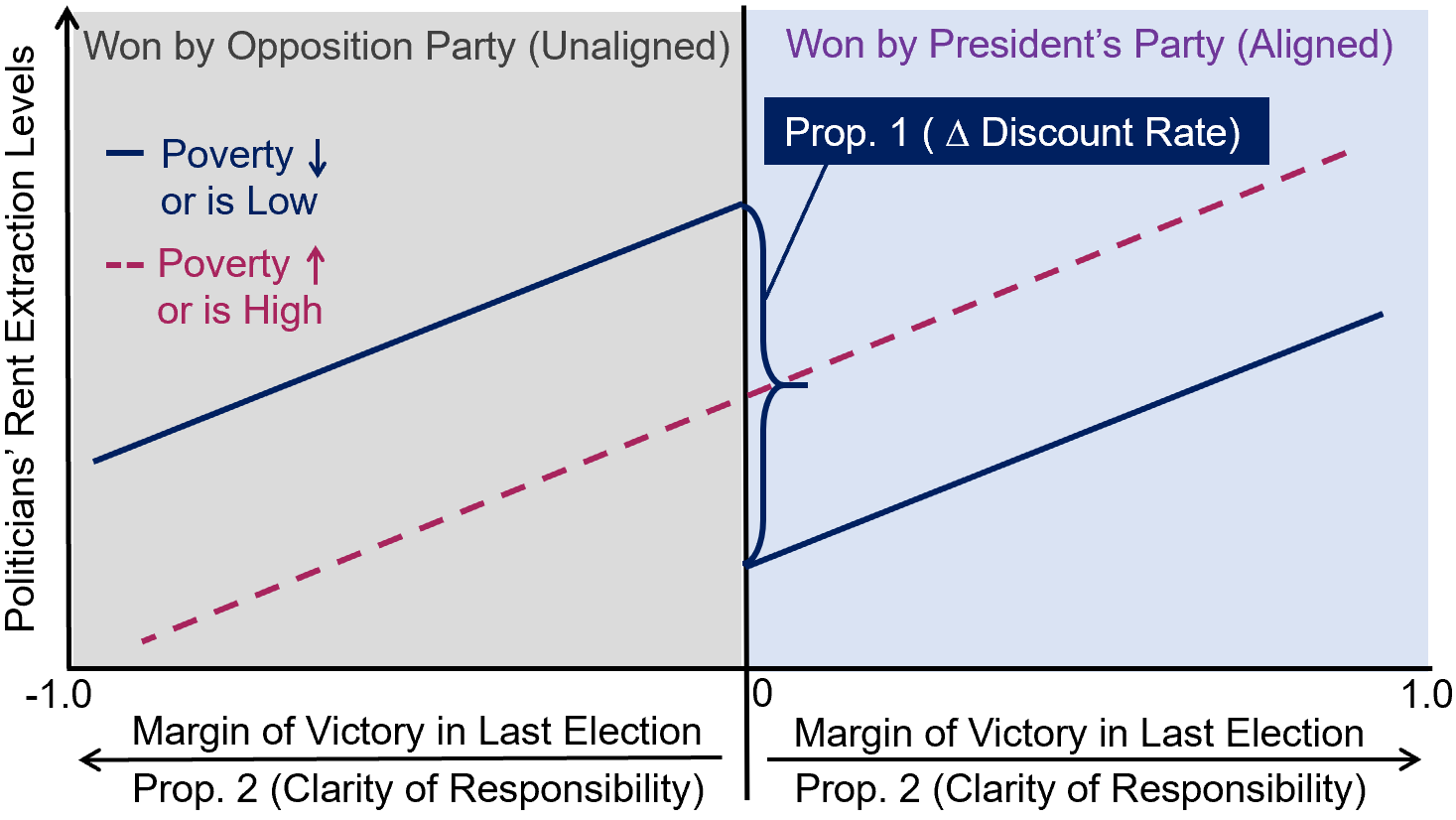Poverty, Party Alignment, and Reducing Corruption through Modernization: Evidence from Guatemala
Presented at the Academia against Corruption in the Americas Conference
Party alignment entails politicians sharing the same party at higher and lower levels of government, giving aligned politicians greater access to the spoils of the bureaucracy. Does the political-institutional configuration of party alignment thus necessarily lead to more corruption? Given that party alignment also signals clarity of political responsibility for corruption to voters, we theorize that party alignment can actually yield lower levels of corruption if two conditions are met. Using a regression discontinuity design and novel corruption data from Guatemalan municipal audit reports, we show that aligned politicians are less likely to engage in corruption if there is both significant electoral competition and voters' poverty levels are low or decreasing. The results of our study document how the reduction of corruption through modernization forces such as decreasing poverty takes place through political institutions. [Draft Paper]

